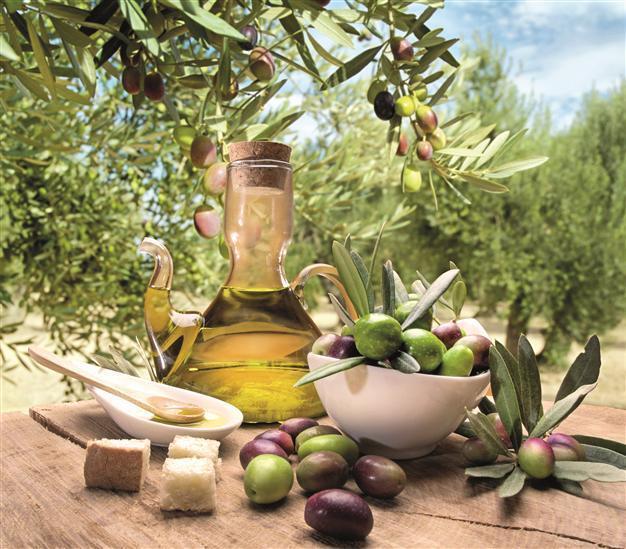Turkey unable to benefit from rise in olive oil production due to overpricing
Burak Coşan - ISTANBUL
 While big olive oil producers had their worst year in more than a decade, Turkey couldn’t turn this situation to its advantage despite increasing production, as some merchants stockpiled olive oil and caused prices to rise dramatically, according to sector representatives.
While big olive oil producers had their worst year in more than a decade, Turkey couldn’t turn this situation to its advantage despite increasing production, as some merchants stockpiled olive oil and caused prices to rise dramatically, according to sector representatives. Spain, which accounted for half the world’s production of all grades of olive oil last year, had a mediocre year due to a toxic cocktail of scorching temperatures, drought and bacteria. The same reasons hampered France and Italy’s productions, whereas Turkey, a leading producer, increased its production by 12 percent compared to last year, when the total production in the world decreased by one-third.
In spite of all the obstacles which emerged, France, Italy and Spain increased their prices by 25 percent, while in Turkey despite the escalation in production the price raised by 60 percent, making the oil in Turkey the most expensive in the world.
The main reason the price rose so dramatically is producers arrested their supplies while the companies who bought the products stockpiled them, both expecting the prices to further increase.
As a result, the price of oil reached 11.5 Turkish Liras, making it the most expensive oil in the world, and many countries, especially the ones facing financial difficulties, found Turkish oil too expensive to export. Instead, EU countries preferred to export from Tunisia and Morocco due to the low prices; Turkey’s Komili was the first this year to take such a step.
“Our producers are now exporting their products for almost nothing just to not lose their market share to their strong Spanish and Italian competitors,” said the head of the Aegean Olive and Olive Oil Exporters Association (EZZİB), Gürkan Renklidağ. Both the producers and the exporters have suffered, he added.
“The government was supposed to intervene. It was supposed to support the producer and the exporter and regulate the market. The EU countries saw this coming and they lowered their quota for the exports from Tunisia, thus the prices did not increase, but Turkey was too late to act,” said EZZİB Vice Chairman Mehmet Emre Uygun.
Cahit Çetin, a board chairman of TARİŞ, a leading olive and olive oil union, said producers should have been encouraged to supply and added, “We have a proclivity to punish the producers with imports, which is wrong.”
















